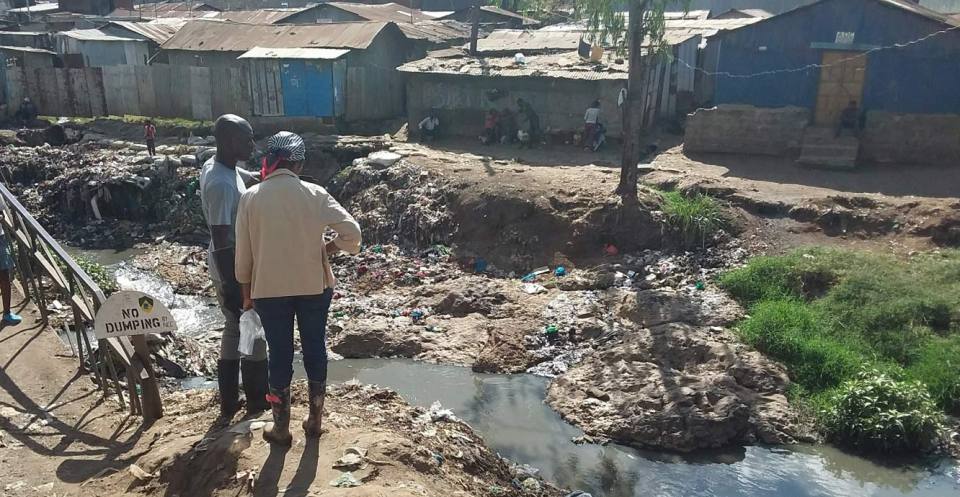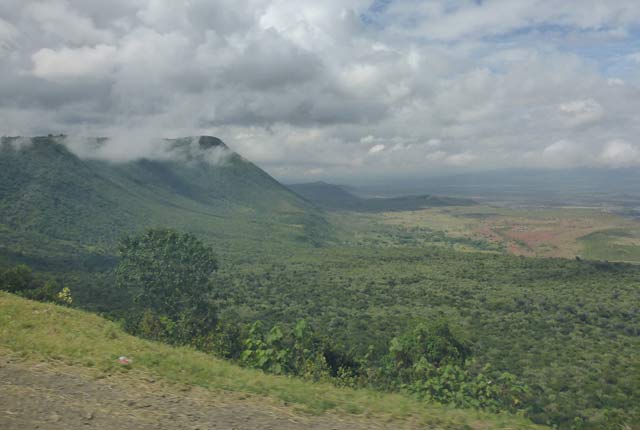East African cities are undergoing rapid urbanisation, resulting in an increase in the number and size of informal settlements or slums. These informal settlements lack essential services including sanitation, which results in the release of untreated faecal matter and associated organic emerging contaminants (EC). These threaten human life and ecological status because they
- disrupt human immune, nervous and reproductive systems
- increase bacterial resistance
- provide a growth medium for Salmonella, cholera, diarrhoea, typhoid and hepatitis A
The complex chemical mixture causes nutrient enrichment, eutrophication, toxic algal blooms and water column anoxia, which in turn can lead to a reduction in species diversity and ecosystem instability.

Collection of samples for the baseline survey. BGS © UKRI.
In Kenya, attention to this issue is rising because it impacts the welfare of about 20 per cent of Nairobi’s five million inhabitants, but it applies to all cities in Eastern Africa. We are working with partners at the University of Nairobi to undertake a baseline survey of emerging contaminants in two contrasting rivers of Nairobi, one of which receives raw effluent from informal settlements of Kibera, Mathare and Mukuru, and a control. Results from chemical measurement of pharmaceuticals and xeno-oestrogen compounds coupled with toxicity bioassay tests will be used to identify suitable remediation options.
You may also be interested in

Integrated resource management in Eastern Africa
Our current activities build on the BGS’s extensive research experience in this region, contributing to welfare and future economic growth by the responsible use of natural resources.



